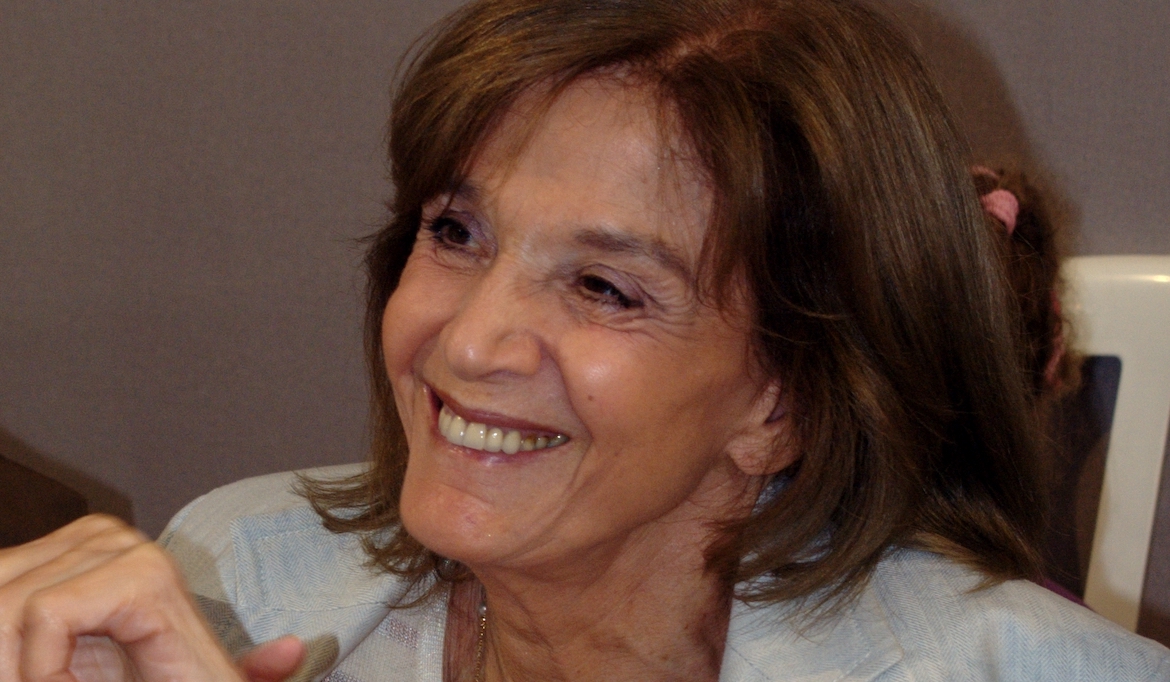Gisèle Halimi was a French lawyer, feminist activist and politician, born in 1927 in Tunis and died in 2020 in Paris. She was an important figure in the struggle for women's rights in France and around the world.
Halimi grew up in a Tunisian Jewish family and moved to France to study law. She began her legal career in 1956 and quickly became involved in social justice and human rights cases. She defended Algerian activists during the Algerian War, as well as anti-colonial activists and immigrants in France.
In 1965, she defended Djamila Boupacha, an Algerian activist who had been tortured by French law enforcement. Her work in this case contributed to the abolition of the death penalty in France.
In addition to her work as a lawyer, Halimi has been active in politics. She was elected to the European Parliament in 1994 and was a member of the French National Assembly.
She has received numerous awards and honors for her work, including the Paris Bar Medal for her fifty-year career in 2003 and the Legion of Honor in 2014.
Since 1985, she has held several successive positions at UNESCO. She was first appointed Ambassador of France, a position she held for one year, and then served as Chair of the Committee on Conventions and Recommendations until 1987.
In 1989, she became special advisor to the French delegation to the United Nations General Assembly, and then rapporteur for gender equality in politics.
In 1998, she co-founded the anti-globalization association ATTAC, Association for the taxation of financial transactions and for citizen action.
Halimi is also known for her work on women's rights. Devoting much of her career to the struggle for women's rights, she has been a key figure in the feminist movement in France. Among her many works, she published, in 1973, "La Cause des femmes", considered a founding text of the feminist movement in France.
In 1972, Gisèle Halimi founded the feminist movement Choisir la cause des femmes, which campaigned for free abortion in France. At the time, abortion was illegal in France, except in cases of danger to the life of the mother. The association organized demonstrations and awareness-raising activities, and succeeded in having the Veil Act passed in 1975, which legalized abortion in France.
In addition, in 2008, she published with the association the essay entitled "The Most Favored European Clause", which proposes to generalize to all female citizens of each member country of the European Union the most favorable provision in each area of women's rights.
She has also been involved in the fight for equal pay between genders, and has defended women who are victims of discrimination in their workplace. In 1983, she was appointed chair of the Commission for Equal Opportunity between Men and Women, which proposed measures to fight wage discrimination. The Equal Employment Opportunity Act of 1983 was inspired by the recommendations of this commission.
Halimi has also worked on the issue of violence against women. She has been an active advocate for women who have been raped and has helped to have rape recognized as a crime in France. She notably advocated for better protection of women against sexual and domestic violence, working on cases of rape and domestic violence and lobbying the authorities to take stronger measures against these crimes. In 1980, she defended a teenager who had been raped and charged with incitement to commit the act. Her defense led to the recognition of the concept of consent in rape cases.
A tireless activist for women's rights, she has worked on many fronts to fight gender inequality in France and around the world.
One of her greatest contributions was her work to legalize abortion in France. In 1971, she defended a young woman who had an abortion after being raped and used the case to draw attention to the lack of reproductive health rights for women. It was following this event that she founded the feminist movement Choisir la cause des femmes.
In addition, Halimi has contributed to the expansion of women's rights in society. She has worked on issues such as equal political representation, fighting gender stereotypes in the media and educating young girls.
She has been a strong voice for women's rights around the world, working alongside other activists to combat sexual violence in armed conflict and to defend women's rights in developing countries.
Gisele Halimi's deep commitment to women's rights has had a lasting impact on French society and beyond. She inspired many other women to stand up for their rights and helped advance the cause of gender equality.
Having a strong impact on French and international society, she has contributed to the advancement of women's and minority rights in France and around the world. Her life and work are a source of inspiration for future generations of activists and human rights defenders.
"Her feminism, total and obstinately coherent, transcends and pierces the antagonistic "camps" which tear at her memory, so much it was, until the end, carried by a requirement which never affected neither the spirit of body, nor the doctrinal zizanie which has always divided the militant movements." - Marylin Maeso, philosopher, about Gisèle Halimi.
Gisèle Halimi, la cause des femmes - Histoire TV : https://youtu.be/NShd2aBIorI.
Article par Julie henry Poutrel pour Adama Toulon
© Photo: Olivier Tétard - CC BY-SA 3.0


